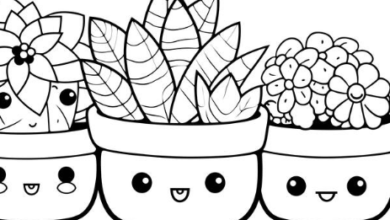Emoji:1rof1ypykh0= Jealous

The “Jealous” emoji, with its distinctive frown and narrowed eyes, serves as a poignant representation of the multifaceted nature of jealousy in modern communication. As digital interactions increasingly replace face-to-face conversations, understanding how this emoji conveys complex emotions becomes essential. Moreover, its cultural connotations may shift dramatically depending on context, prompting questions about the universality of jealousy itself. What implications does this have for our emotional expressions in a digital landscape, and how might these layers of meaning influence interpersonal relationships? The exploration of these themes reveals much more than simple imagery.
Understanding the Jealousy Emoji
The jealousy emoji, often depicted as a face with an exaggerated frown and narrowed eyes, serves as a visual representation of complex emotional states associated with envy and possessiveness.
This emoji encapsulates the emotional impact of jealousy triggers, such as perceived threats to relationships or status.
Its usage in digital communication highlights the nuanced expressions of human sentiment, allowing for more profound interpersonal connections.
See also: Emoji:1-Hvltfhdsa= Texas Flag
Cultural Interpretations of Jealousy
Exploring jealousy through a cultural lens reveals significant variations in how this emotion is perceived and expressed across different societies.
Jealousy symbolism can manifest in diverse forms, influencing interpersonal relationships and social dynamics. In some cultures, it may signify deep emotional bonds, while in others, it can represent insecurity or possessiveness, highlighting the intricate tapestry of cultural variations that shape human experiences of jealousy.
The Role of Emojis in Communication
Cultural interpretations of emotions like jealousy underscore the complexity of human interactions, particularly in an increasingly digital world where communication is often mediated by technology.
The emoji evolution reflects a significant shift in digital language, enhancing expression and facilitating nuanced conversations. Emojis serve as visual shorthand, bridging emotional gaps, and enriching interactions by allowing users to convey feelings that text alone may inadequately express.
Expressing Emotions Through Emojis
Emojis have emerged as a vital component of modern digital communication, serving as emotional signifiers that enhance the clarity and depth of interpersonal interactions.
Through their diverse emoji meanings, they facilitate nuanced emotional expression, bridging gaps that traditional text may leave ambiguous.
This innovative language invites users to convey feelings freely, enriching conversations and fostering connections in an increasingly digital world.
Conclusion
In a world increasingly dominated by digital expression, the “Jealous” emoji emerges as a nuanced vehicle for conveying complex emotions. This simple symbol, wielded to articulate envy and possessiveness, ironically suggests that while humans grapple with intricate feelings, a mere graphic suffices for profound communication. As relationships are reduced to pixelated sentiments, the emoji serves as a modern-day oracle, revealing that perhaps the true threat lies not in jealousy itself, but in the oversimplification of emotional discourse.







